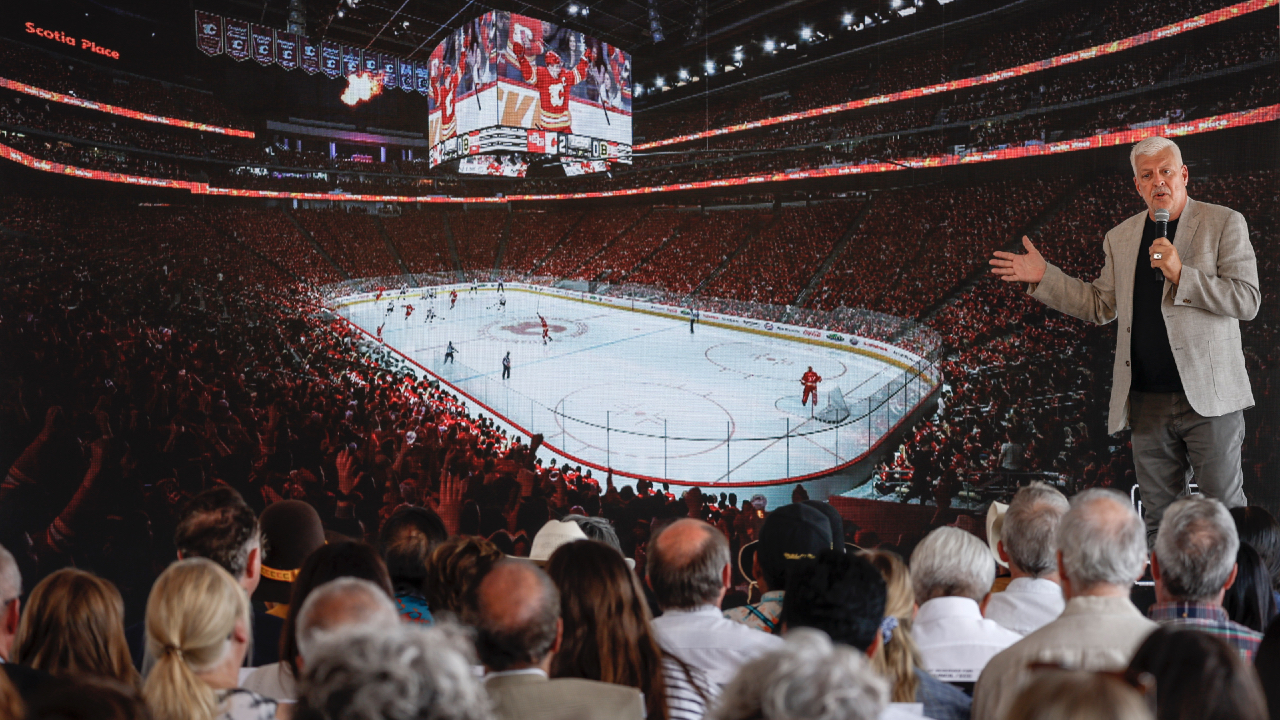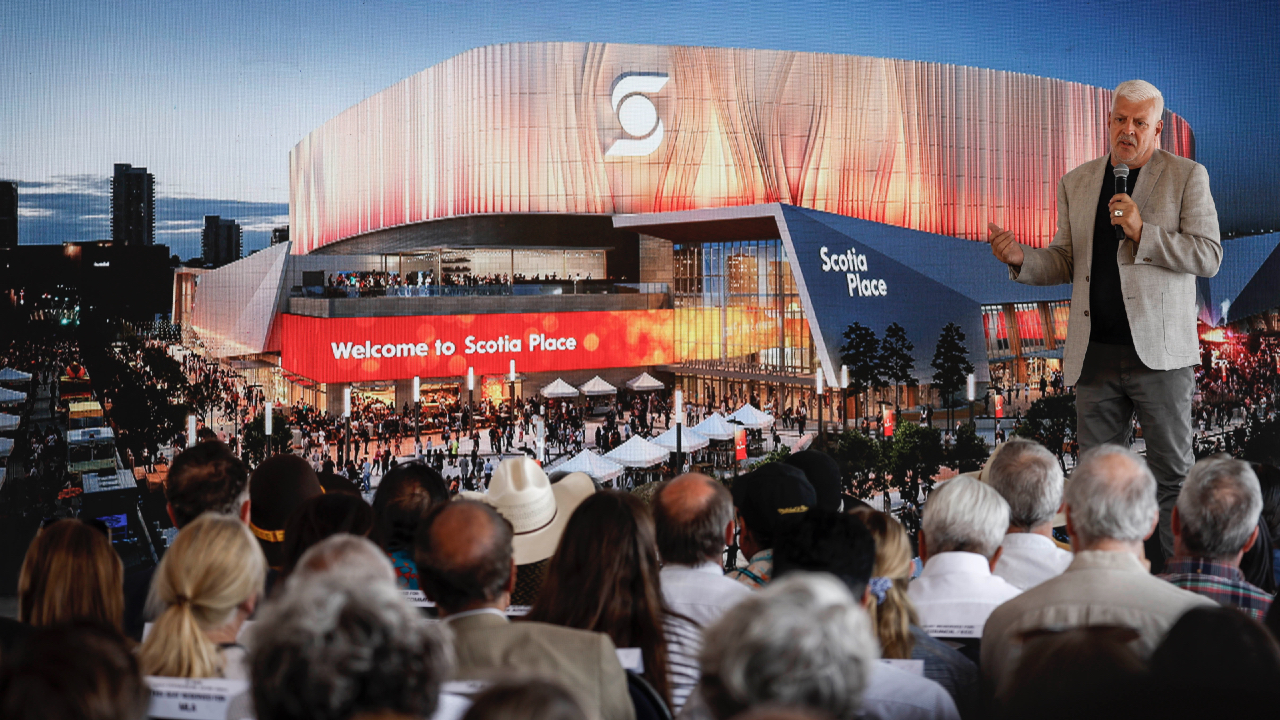
CALGARY — There was never any chance the future home of the Calgary Flames would include architecture as iconic as a saddle-shaped roof.
But what Calgarians saw at Monday’s design unveiling and sod turning was a building far more striking than many anticipated.
Scotia Place, an $800-million building, was designed with a fire and ice theme that includes the upper level of the façade, known as “the Cauldron,” depicting flames.
An open-air patio will sit above the main entrance and beneath it will be a 140-metre digital display, believed to be the longest in Canada.
Unlike the previous design, which died when the Flames pulled out of an agreement with the city in 2021 due to escalating costs, this one is stunning.
And while the project (and budget) promised to be much grander this time around, the focal point was always said to be the building’s functionality inside.
Situated in a parking lot just two blocks north of the 41-year-old Saddledome, the 18,400-seat event centre will feature 52 luxury suites in a building stakeholders pledge will be worth the wait.
“I believe Scotia Place will be the first, world-class, state-of-the-art building that will raise the bar in the entertainment business for a lot of reasons,” said design principal for the international architectural firm HOK, Bill Johnson.
“We built flexibility into the seating — very intimate seating, so when concerts or events come you’re going to feel like you’re right on top of the action.
“That was intentional and that was something CSEC (the Flames’ parent company) really asked us to achieve.”
Johnson said Little Caesar’s Arena in Detroit, another one of HOK’s projects, provided the lion’s share of inspiration, due to the steep grade of seats surrounding the ice.
“The seating is very close to the action — it’s going to be like playing into a wall of people,” said Johnson, whose firm teamed up with local architectural firm Dialog.
“So I think we’re going to give the Flames an enormous competitive advantage.”
With a food court and plenty of indoor and outdoor gathering space incorporated into the design, the idea is that Scotia Place will be an attractive gathering place 365 days a year, as the focal point of the Entertainment and Rivers districts.
The 1,000-seat community rink attached to the project has a separate entrance but is also tied in with the rest of the building so the Flames, Hitmen, Wranglers and Roughnecks can use it as a practice facility.
The event level / ice surface will be lowered so the primary concourse will be at street level.
With restaurants, shops and plazas on the outside of the building, careful attention was made to make all four sides of the building aesthetically pleasing. The outside of the parking garage, which faces Scotsman’s Hill to the east, will be covered with designs from Indigenous artists.
Inside the main entrance, there will be a commemorative display on local sports history.
In one of the largest press conferences the Flames have been a part of in decades, hundreds gathered under a tent at the arena site for an hour-long unveiling that included mayor Jyoti Gondek, premier Danielle Smith, Indigenous officials, city councillors and Flames owners Alvin Libin, Allan Markin and Jeff McCaig.
The city will own the building, the Flames will operate it and the province’s pledge to spend $300 million in infrastructure around the rink made for a perfect partnership on a $1.2 billion project that took well over a decade to consummate.
The deal was brokered in April and designers had to start from scratch, taking time to talk to all stakeholders, including Flames staffers, with an eye on meeting everyone’s needs.
“For sure they gave us a say on the coaches area, and more so our equipment guy (Mark DePasquale) has been very involved, as is our training staff with our gym facility and our therapy facility,” said Flames coach Ryan Huska, on hand for the historic event, which concluded with a ceremonial sod-turning.
“They’ve been really excellent in getting ideas from everybody and being willing to tweak here and there.
“The practice facility being underground is something interesting to me, as is the sheer size of the project and how they tie in the whole Stampede grounds.
“To me it’s going to be a little bit of a festival plaza where people are going to want to come and be around.”








